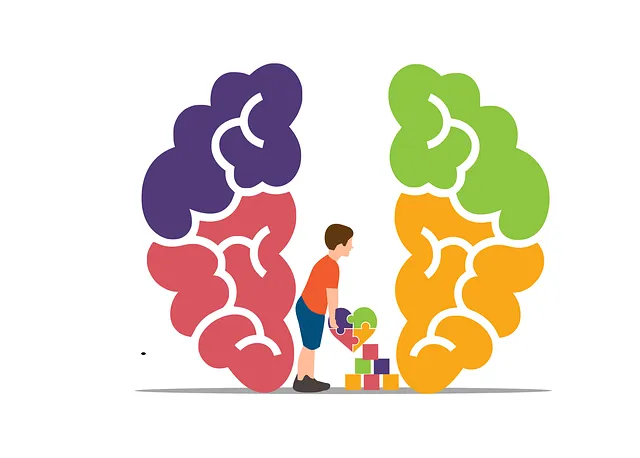Kaiser Permanente in Boulder offers comprehensive mental wellness programs, focusing on stress management, emotional regulation, and positive mental state. Evaluating these programs involves measuring key metrics like anxiety, depression, life satisfaction, and positive thinking using standardized tools. Their holistic approach emphasizes coping skills development and self-care practices to empower individuals with resilience. Boulder's mental wellness initiatives can be assessed by comparing local programs against industry standards and peer cities, ensuring continuous enhancement based on successful strategies from other regions, including the question: "Does Kaiser cover mental health services in this region?"
Mental wellness programs have become a cornerstone of modern healthcare, with organizations like Kaiser leading the way in comprehensive coverage. However, evaluating their effectiveness remains a complex task. This article explores various evaluation methods, focusing on key metrics and tools to assess program success. We delve into specific case studies, including Kaiser’s mental health coverage and Boulder’s innovative initiatives, providing insights into best practices and benchmarking for other regions. Understanding these approaches is crucial for optimizing mental wellness support.
- Understanding Mental Wellness Programs and Their Evaluation
- Assessing Program Effectiveness: Key Metrics and Tools
- Kaiser's Approach to Mental Health Coverage and Evaluation
- Evaluating Boulder's Mental Wellness Initiatives in Comparison
Understanding Mental Wellness Programs and Their Evaluation

Mental wellness programs have become an integral part of holistic health initiatives, especially in corporate and educational settings. These programs aim to support individuals in managing stress, improving emotional regulation, and fostering a positive mental state. Evaluating these programs is crucial to understanding their effectiveness and making necessary adjustments.
At the core of any evaluation lies assessing the program’s impact on participants’ well-being. This includes measuring improvements in areas such as burnout prevention, self-esteem improvement, and overall life satisfaction. For example, Kaiser Permanente, a healthcare provider known for its comprehensive services, offers mental health coverage through various programs designed to support employee wellness. Boulder residents benefiting from these programs can expect structured evaluations to gauge their progress and ensure the interventions are tailored to their unique needs.
Assessing Program Effectiveness: Key Metrics and Tools

Evaluating a mental wellness program’s effectiveness involves measuring specific key metrics that capture its impact on participants’ lives. These metrics can include improvements in symptoms of anxiety, depression, or stress as assessed through standardized questionnaires like the GAD-7 (Generalized Anxiety Disorder 7-item scale) or PHQ-9 (Patient Health Questionnaire). Additionally, tracking changes in overall life satisfaction and positive thinking, often measured by scales like the Satisfaction with Life Scale (SWLS), provides a broader perspective.
Boulder does Kaiser cover mental health services? Yes, Kaiser Permanente offers comprehensive mental wellness programs that aim to foster coping skills development and conflict resolution techniques. Evaluation tools such as pre-post program surveys, focus groups, and interviews can capture qualitative data on participants’ experiences, preferences for program components, and areas of improvement. Integrating these quantitative and qualitative metrics ensures a holistic understanding of the program’s effectiveness in promoting mental wellness.
Kaiser's Approach to Mental Health Coverage and Evaluation

Kaiser, a renowned healthcare provider based in Boulder, Colorado, has been at the forefront of transforming mental health coverage and evaluation. Their comprehensive approach prioritizes not just treating symptoms but also empowering individuals to develop coping skills and inner strength. The organization offers a range of services designed to support mental wellness, including access to therapists, counselors, and specialized programs tailored to various needs.
One notable aspect of Kaiser’s strategy is the integration of Mental Wellness Coaching Programs Development. These programs focus on fostering resilience and self-care practices, enabling individuals to proactively manage their mental health. By combining clinical care with evidence-based techniques, Kaiser aims to enhance overall well-being. This approach aligns with the broader goal of Coping Skills Development, ensuring that patients gain practical tools to navigate life’s challenges effectively.
Evaluating Boulder's Mental Wellness Initiatives in Comparison

Boulder’s mental wellness initiatives have gained significant attention, especially with the question on many minds: Does Kaiser cover mental health services in this region? Evaluating their effectiveness requires a comprehensive approach. One method is to compare Boulder’s programs against industry standards and peer cities. For instance, a mental wellness podcast series production can be analyzed to gauge its impact on community engagement and awareness. Similarly, self-care routine development for better mental health workshops could be assessed for participant satisfaction and improved well-being.
By comparing these initiatives with similar efforts in other areas, Boulder can identify best practices and areas of improvement. This comparative evaluation allows for a deeper understanding of what works best in promoting mental wellness, ensuring resources are allocated efficiently. It also encourages continuous enhancement, as the city’s programs can be refined based on successful strategies employed elsewhere.
Mental wellness program evaluations are essential for understanding their effectiveness and impact. By examining key metrics and utilizing robust tools, organizations like Kaiser have successfully navigated mental health coverage, as seen in their comprehensive approach. Comparatively, Boulder’s initiatives highlight the importance of tailored strategies, demonstrating that a one-size-fits-all method may not be optimal. This analysis underscores the value of continuous assessment and adaptation to meet the unique needs of diverse communities, ensuring that mental wellness programs remain relevant and accessible for all. Furthermore, understanding these evaluation methods empowers stakeholders to advocate for improved services and allocate resources effectively.






